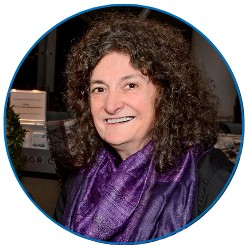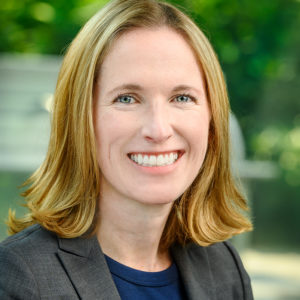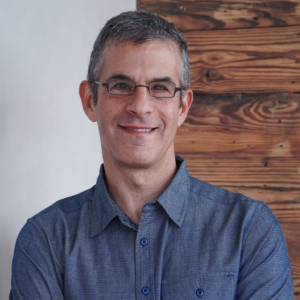At Northeastern Law, every faculty member is committed to public interest law and social justice. We invite you to read their profiles and find out more about their impact.
Faculty Spotlight: Professor Lucy Williams
 “Law practice in the service of social justice is an ideal coded into our institutional DNA,” says Professor Lucy Williams, faculty director of Northeastern University School of Law’s Center for Public Interest Advocacy and Collaboration (CPIAC). “A commitment to public interest is an overarching ethos of our curriculum and pedagogy; we hope that all of our students will come to feel instinctively that standing for the public interest and doing public interest work are parts of the professional responsibility of all lawyers.”
“Law practice in the service of social justice is an ideal coded into our institutional DNA,” says Professor Lucy Williams, faculty director of Northeastern University School of Law’s Center for Public Interest Advocacy and Collaboration (CPIAC). “A commitment to public interest is an overarching ethos of our curriculum and pedagogy; we hope that all of our students will come to feel instinctively that standing for the public interest and doing public interest work are parts of the professional responsibility of all lawyers.”
Williams was an obvious choice to head the new center. Pursuing social justice has been the personal and professional passion of her lifetime. She has devoted virtually all of her legal career to social justice and to fighting for the rights of poor people and marginalized groups.
Before joining the Law School faculty, Williams spent 17 years in practice as an advocate for poor people. She appeared in courts, engaged with government agencies and worked in high-profile policy settings, but much of her work was toiling at street-corner level, outside the spotlight, working with poor people in their daily struggles to maintain housing and feed and protect their families. She began in a neighborhood legal aid office on Chicago’s West Side doing unglamorous, frustrating, draining, but nevertheless intellectually challenging and emotionally rewarding work. Decades ago, she was one of the first lawyers to pioneer practice in the then-uncharted territory of domestic violence. As she accumulated experience over the years, Williams became a nationally respected trainer for poverty lawyers. She joined and spent 13 years as an attorney at the Boston-based Massachusetts Law Reform Institute, where she was in the forefront of class-action impact litigation and representation of community groups such as the Coalition for the Homeless, the Coalition for Basic Human Needs (a welfare-rights group) and an organization of pregnant teenagers.
Williams has been a popular teacher of Civil Procedure, Federal Courts, and Social Welfare Law at Northeastern for more than two decades. These are notoriously technical subjects covering mountains of arcane detail, but Williams weaves the emphasis on public-interest lawyering into her teaching from day one. Williams begins her Federal Courts course, for example, with a hypothetical case about an African-American, homeless woman who is evicted from a shelter after attempting to organize the shelter’s women of color who are denied the same educational opportunities afforded to white women. The students return to the case throughout the course as they work through doctrinal complexities. The twin messages are that lawyers need to fight for those who suffer injustice and that the only way to do that successfully is to learn to think outside the box.
“At Northeastern, we do not think of public interest law as a field or subject-matter, the way one might think of torts or tax or environmental as fields of law. Public interest is a broader mission that is reflected in the way all subjects are taught and in many diverse activities and programs in the law school.”
In addition to heading CPIAC, Williams is co-director of the law school’s Program on Human Rights in the Global Economy (PHRGE), which encourages students to think about career paths in human rights law and advocacy on behalf of marginalized communities world-wide. PHRGE fellows received funding for co-ops abroad, working with affiliated practices such as the Human Rights Law Network in India.
But classes and co-ops are not all the school offers for students who embrace the law school’s public interest mission. On a daily basis, CPIAC, under Williams’ direction, works with a wide variety of groups both at the law school and beyond, including the International Social and Economic Rights Project (iSERP), a global network of lawyers, judges, academics and activists who study the experience of advocates seeking to use social and economic rights in domestic and international legal instruments to advance the welfare of marginalized communities.
The law school also sponsors programs that allow students to meet and work with outstanding practitioners fighting in the trenches for the public interest. The Givelber Distinguished Public Interest Lecturer Program brings in leading practitioners as visiting faculty for intensive weekend courses on specialty topics.Students learn, for example, how to bring a police misconduct case or sue a major corporation for environmental damage. Similarly, the Daynard Distinguished Visiting Fellows Program brings nationally recognized public interest leaders to campus twice a year. These guests serve as role models for students, demonstrating how legal skills can be used effectively and creatively to make the world a better place. Fellows deliver an address focused on the strategic use of law to promote public interest goals, participate in a roundtable with other prominent public interest advocates, visit classes, consult about professional opportunities for students and graduates, and meet individually with interested faculty, administrators and students.
“CPIAC,” Williams explains, “is intended to link together and provide resources for all of the many diverse public interest activities and projects going on in the law school and broader university community. We hope the synergies we create will make the whole greater than the sum of its parts.”
2022-2023 Faculty Fellows
CPIAC is thrilled to host our 2022-2023 Faculty Fellows: Professor Stefanie Leahy and Professor Daniel Medwed. Their research and scholarship advances CPIAC’s Cradle-to-Prison Pipeline Project.

Stevie Leahy
Assistant Teaching Professor and Resident Fellow, Center for Public Interest Advocacy and Collaboration
The Massachusetts Superior Court recently issued a decision that the prohibition on Juvenile Life Without Parole (JLWOP) should extend beyond age 18. This is a developing area of law not only in the commonwealth, but nationally. Professor Leahy will lead two Legal Skills in Social Context projects furthering work to decrease juvenile incarceration and sentencing and further disrupt the cradle-to-prison pipeline — both with partners represented on CPIAC’s Cradle-to-Prison Pipeline Advisory Board. This research will lead to creation of a bench card related to juvenile sentencing. She will additionally publish and present on her research in the Mercer Law Review Symposium Edition Prologue: Legal Narratives and the Law’s Potential for Justice and Injustice (forthcoming, 2023). Her article will highlight the way narrative is used (or ignored) in juvenile sentencing decisions and the myriad factors that impact an individual’s final outcome. Professor Leahy is further engaging students with the substantial relevance of her research by organizing “A Conversation with William Allen: Correcting a Fundamental Unfairness through the Clemency Process.” The event broughtt William Allen, a prominent recipient of a rare LWOP commutation, and his attorney, to Northeastern Law to discuss Allen’s experience.
Professor Leahy’s research and scholarship in the current academic year builds upon her prior work as a CPIAC Faculty Fellow in 2021-2022, during which she presented for CPIAC at two conferences: The National Conference on Juvenile Justice (Pittsburgh, Penn.) and the Hampton Roads Social Justice Conference (Newport News, Va.). Throughout her fellowship, Professor Leahy’s contributions focused on, and engaged students in, tracking the impact of the Supreme Court ruling in Jones v. Mississippi and JLWOP sentencing, and additionally supported research by Citizens for Juvenile Justice, a partner in the Cradle-to-Prison Pipeline Project, into school-based arrests.Professor Leahy’s recent publication in the Northeastern Law Review Online Forum, “Clemency Hearing Raises the Question of Whether Massachusetts’ Courts are Ready to Extend the Prohibition on LWOP Sentences Beyond Eighteen,” expounds on her research related to the extension of sentencing limits beyond the bright line of 18 years.
Daniel Medwed
University Distinguished Professor of Law and Criminal Justice
Professor Medwed’s book, Barred: Why the Innocent Can’t Get Out of Prison, focuses on procedural barriers to freeing innocent prisoners, one of which concerns the parole process and the opaque and problematic criteria parole boards often use in making release decisions. During his fellowship with CPIAC, Professor Medwed will build on his scholarship on parole and probation. Specifically, his project will focus on how relatively minor transgressions can lead to a finding that someone has violated the conditions of their probation or parole and how that finding tends to result in imprisonment, adding to the problem of mass incarceration. This research will inform a white paper on these practices, with recommendations for reform.